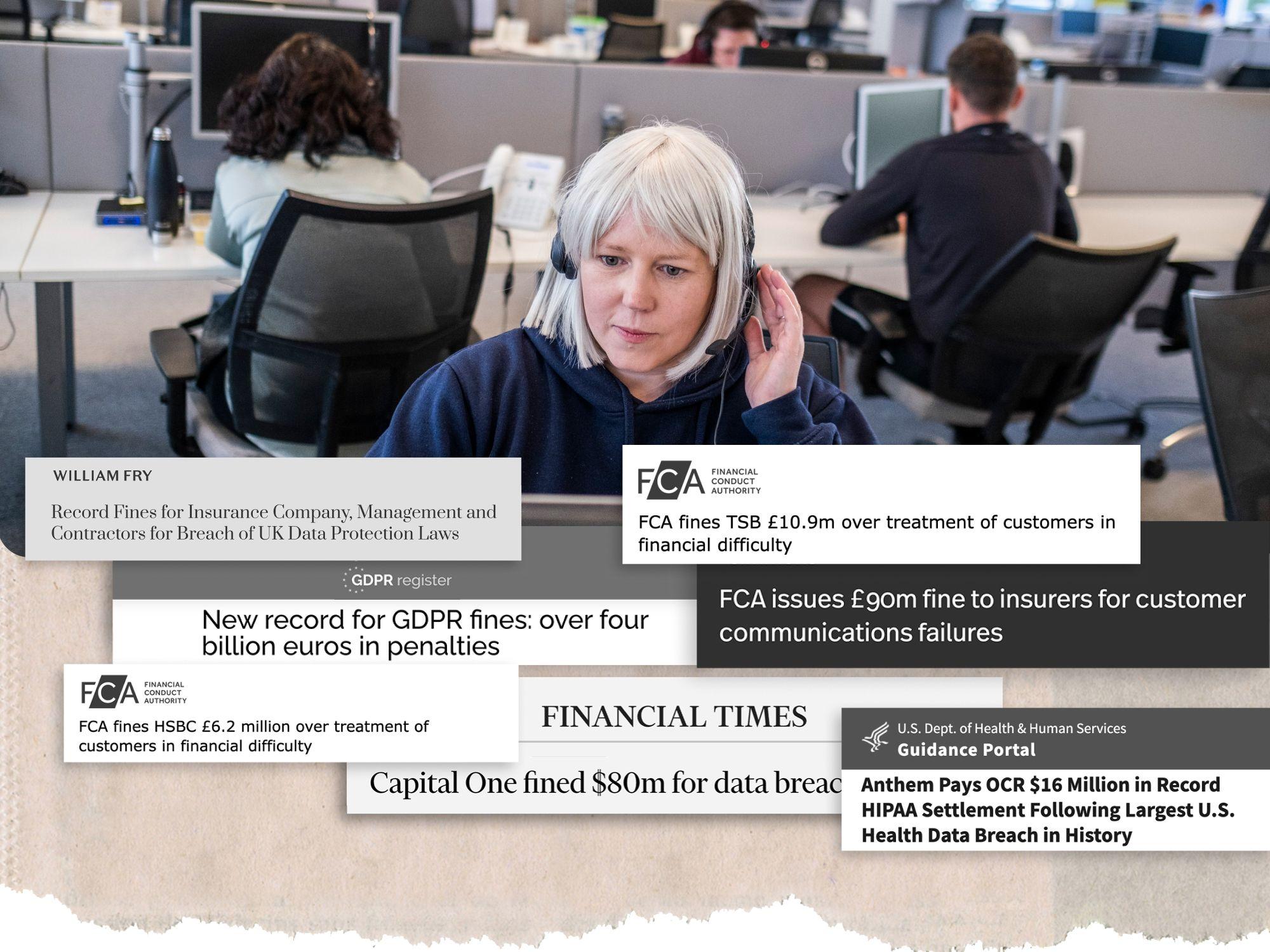
Why Verbal Disclosure Risks Are the Next Big Challenge for Call Centres
This blog delves into why verbal disclosure risks are becoming a significant compliance challenge for call centres and how you can address them effectively.
In the fast-paced environment of call centres, conversations often involve sensitive customer information—from payment details to personal identifiers. But have you ever considered the risks posed by verbal disclosures? These seemingly harmless interactions can lead to severe compliance breaches, hefty fines, and a loss of customer trust.
This blog delves into why verbal disclosure risks are becoming a significant compliance challenge for call centres and how you can address them effectively.
What Are Verbal Disclosure Risks?
Verbal disclosure risks occur when sensitive information, shared during a call, is overheard or mishandled. Common scenarios include:
Overheard Conversations:
Unsecured workspaces or remote work environments can expose customer data to unintended listeners.
Audio Recordings:
Inadequate encryption or storage protocols make call recordings vulnerable to breaches.
Miscommunication:
Poor audio quality can result in misheard details, increasing the likelihood of errors or misunderstandings.
Why Are Verbal Disclosures So Risky?
Call centres handle enormous volumes of customer data, making them a prime target for regulatory scrutiny and cyberattacks. Verbal disclosure risks amplify this vulnerability by introducing human error and environmental factors into the equation.
1. Regulatory Compliance Is at Stake
Laws like GDPR, HIPAA, and PCI DSS require stringent measures to protect customer data, including audio data. Failing to safeguard verbal disclosures can lead to violations, attracting penalties such as:
- GDPR fines, which have exceeded €2.92 billion since the regulation was enacted.
- PCI DSS breaches, resulting in fines of up to $500,000 per incident.
2. Poor Audio Quality Amplifies the Problem
Background noise and unclear call recordings make it difficult to ensure verbal disclosures are handled securely. Key risks include:
- Misheard details leading to incorrect data entries or failed authentication.
- Difficulty in auditing calls for compliance when audio clarity is compromised.
3. The Rise of Hybrid Work Environments
With more agents working remotely, verbal disclosures face new challenges:
- Home environments often lack soundproofing, increasing the risk of eavesdropping.
- Public workspaces can expose sensitive information to prying ears.
How to Mitigate Verbal Disclosure Risks
Leverage AI-Powered Audio Solutions:
Tools like IRIS Clarity use noise cancellation and voice isolation technology to ensure only relevant speech is captured and transmitted.
Secure Audio Data at Every Stage:
Encrypt audio recordings and ensure secure storage solutions to protect against breaches.
Conduct Regular Training:
Educate agents on best practices for handling sensitive information, particularly in remote or shared environments.
Implement Clear Call Protocols:
Encourage agents to verify information discreetly and avoid repeating sensitive details unnecessarily.
The Competitive Advantage of Addressing Verbal Disclosure Risks
By proactively tackling verbal disclosure risks, call centres can demonstrate a commitment to data protection. This not only ensures compliance but also builds trust with customers and clients, setting your organisation apart in a competitive industry.


